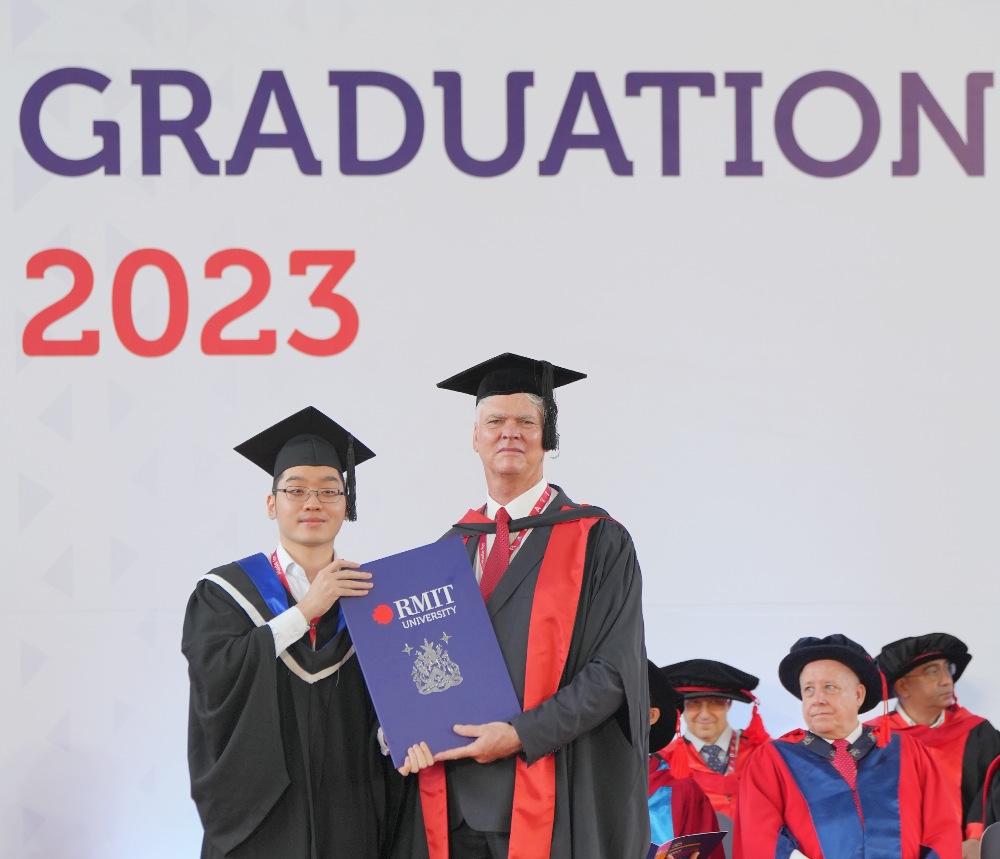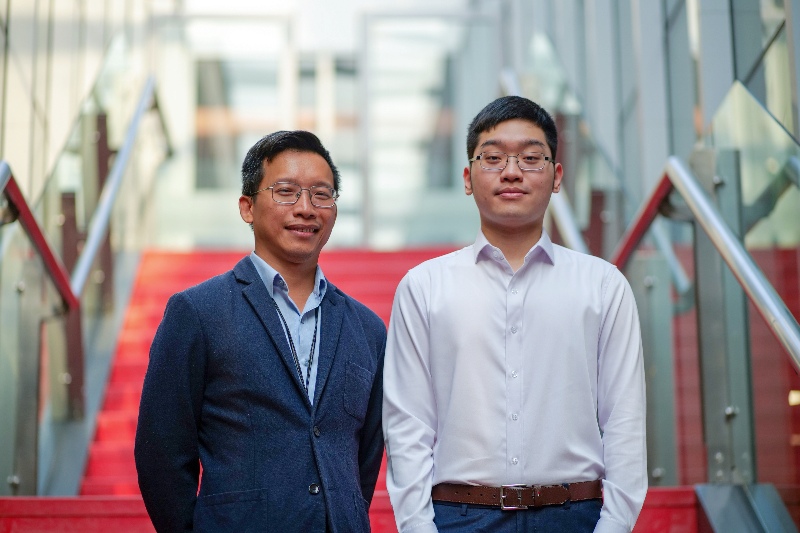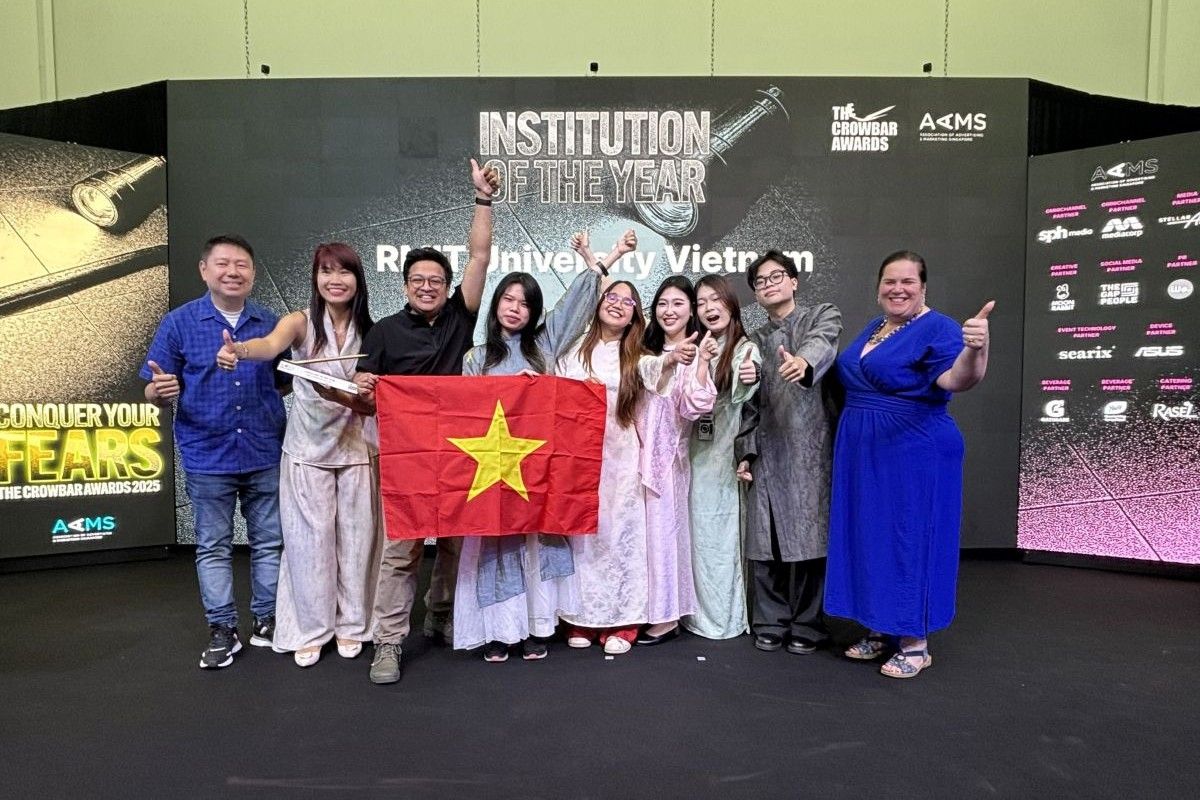Growing up in the age of technology and witnessing how Artificial Intelligence (AI) has replicated human intellectual process and become more influential to human lives, Tang Quang An grew more and more interested in computer science.
Four years ago, An commenced the Bachelor of Engineering (Software Engineering) (Honours) degree at RMIT Vietnam without knowing that his academic journey would excel far beyond a bachelor degree.
“In fact, the application of AI to different sectors has intrigued me a lot, especially in terms of the theory and methodology behind the scenes,” the Academic Achievement Scholarship recipient said.
Intended to study IT but found his way to software engineering program instead as “it is rich in knowledge like coding and programming which allows me, in a way, to build something beneficial for the community”.
The courses and projects that An undertook during his time at RMIT Vietnam indeed deepened his knowledge, especially in Natural Language Processing (NLP), and boosted his desire even further.
“By mastering different key concepts and skills in delivering Machine Learning (ML) projects, I have demonstrated the ability to develop new ML models and architectures that could solve real-world linguistics problems with high performance and efficiency,” An shared.
“One of the courses in research methods for engineers also helped me leverage my research skills and bring out my potential in reviewing and communicating the findings from the literature.”
An’s outstanding performance through his final year Capstone project got him a job as a Research Assistant for one of RMIT’s School of Science, Engineering & Technology’s research projects.
“As part of the Capstone project, I developed a social listening system that automates the collection, pre-processing, and analysis of the aspect-based sentiments of Vietnamese online user reviews and comments,” An shared.
“And the employment at my School gave me a chance to demonstrate my research skills, both in exploring literature and developing prototypes.”






